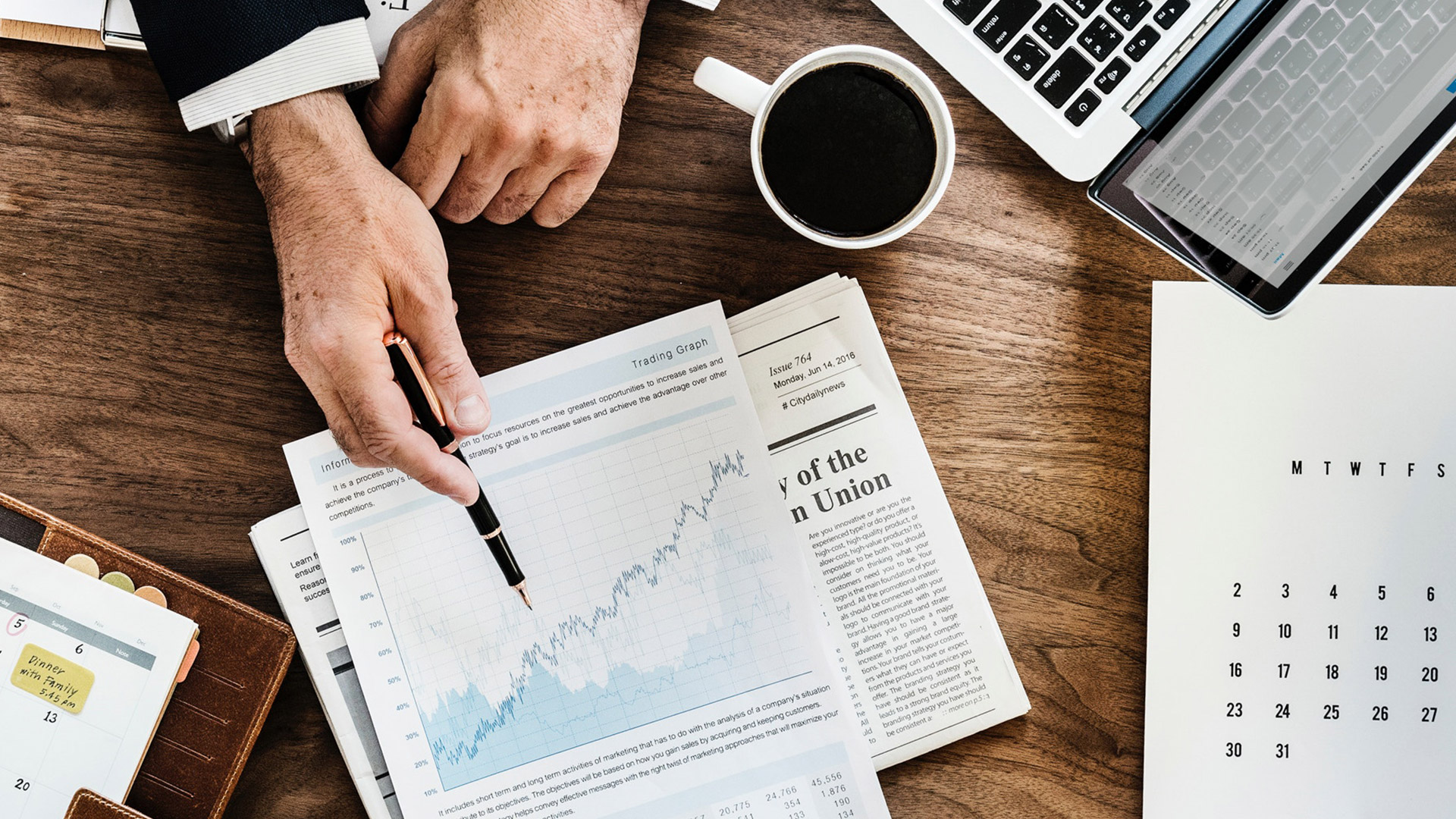Deutsche Hypo has published its Annual Report 2019 today. You can find the document in the download area. Here, you can already read the interview of the Board of Managing Directors, where Sabine Barthauer and Andreas Rehfus describe the financial year 2019 and give an outlook for 2020.
How would you describe the economic environment and Deutsche Hypo’s business performance in 2019?
Barthauer: The economic conditions we operated in have been subject to greatly varied development over the last year. Political and trade disputes had a significant impact on the development of the global economy. That resulted in relatively weak economic growth in the eurozone. In Germany, economic development was even below the European average. In the third quarter, in terms of its GDP, Germany only narrowly avoided a technical recession. As a reaction, the ECB signalled that it would continue with its policy of low interest rates for the time being. And that was the primary reason for continuing high demand for real estate. In terms of completed transaction volume, the industry had a record year in 2019.
Rehfus: Deutsche Hypo performed very well in this environment. Because of ongoing low interest rates and a lack of attractive alternative asset classes, demand for real estate remained consistently high. Despite continuing strong competition, we were able to increase new business slightly year-on-year, which is also reflected by our net interest income. Administrative expenses were lower than in the previous year, which resulted in a further improvement of our CIR to 44.2 %. That is a very good level – including comparison with our peers. The stable market environment and our unchanged risk-aware lending policies, have led to low additions to risk provisions. That allowed us to increase our precautionary reserves over the past year. The result from normal operations of € 55.1 million is lower than in the previous year, which was subject to special effects. However, the profit to be surrendered of € 54.2 million was at the level seen in 2018. That means we can be very satisfied with the past financial year.
What do you expect in 2020?
Barthauer: Deutsche Hypo started the financial year 2020 with ongoing positive framework conditions. However, over the last few weeks, it has become clear that the positive initial situation must be re-evaluated. Depending on the duration and intensity of the economic effects of the coronavirus pandemic and the impact of government aid programs, it will become clear how severely the economies in our target markets will be affected. However, there are already signs of a recession for the whole of 2020 with a possible recovery from the fourth quarter at the earliest. But it is still too early for a reliable outlook.
Rehfus: For Deutsche Hypo, it is very positive that NORD/LB has completed its capital measures, and that the rating agency Moody’s has increased our rating by two notches. Our long-term rating has improved to A3, thanks to a stable outlook. The effects of our cost reduction programme will have a positive impact in 2020, although ongoing digitalisation will result in a need for further investment. We have been highly selective in our lending for years, and pursue a conservative risk culture. This gives us the confidence to steer our portfolio well through the corona crisis together with our clients.
Sustainability has been an important topic for a number of years. Not least through the Fridays for Future movement, the topic seems to have reached society at large for the first time. How is Deutsche Hypo positioned in this regard?
Barthauer: We first established a professional sustainability management system back in 2013, and have continually developed it since then. To seriously pursue a sustainable orientation, the topic must be addressed by a holistic strategy. We do not consider sustainability a one-time effort, or a trend, but rather a process of constant development. To be credible and authentic, there must be a connection with the company’s core business – meaning the assets and liabilities sides of the balance sheet. We have achieved that by establishing green loans and bonds. Deutsche Hypo’s core business is the financing of commercial real estate. Real estate is responsible for a large share of CO2 emissions, making it a significant driver of pollution. As a participant in that market, we have a responsibility which we want to meet.
Rehfus: With the green loan, we have created a form of financing with a preferential interest rate for modern, contemporary buildings that are as forward-looking as possible – and that are energy efficient thanks to state-of-the-art technology and very good energetic properties. However, it is not just the physical construction of a building that counts; other criteria such as transport and use concepts are taken into account. We have also successfully issued our green Pfandbrief for the financing of green buildings a number of times, allowing us to establish a value chain that is reflected in the balance sheet. We are very pleased about the resulting positive sustainability ratings we have received over a number of years. In February 2020, the rating agency ISS ESG again gave Deutsche Hypo a prime rating. And its sustainability rating improved from C+ to B-, making us one of the best in our industry.

